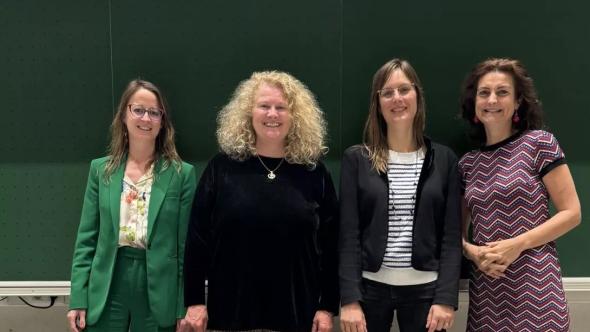As part of the Faculty of Law's Fil Rouge on the theme of harassment, Aude Hansel, professor of English in UNamur's Department of Modern Languages, welcomed Caroline Hunt-Matthes. In her "English for legal professionals" course, she wanted to raise awareness among her second-year students of this subject close to her heart, by tackling the issue of whistleblowers.
"The great thing about language courses is that we can take a very cross-disciplinary approach," enthuses Aude Hansel. "We specialize in the discipline while building bridges with other subjects, which generates a lot of interest among students. To address this theme, I wanted to invite a "native speaker". Caroline agreed to come and meet our students. I explained the history of the theme, presented them with a biography of Caroline Hunt-Matthes and provided them with the necessary vocabulary. We prepared questions in class on the subject, and they were really ready to take part in this conference."
On the day, Amélie Lachapelle, lecturer in the Faculty of Law and whistleblower specialist, introduced the conference by reminding the students of the legal context. They were then able to exchange views with Caroline Hunt-Matthes, by asking her their questions.

